REFLECTION
Surreal safaris – a real Kruger adventure goes beyond spotting the Big Five
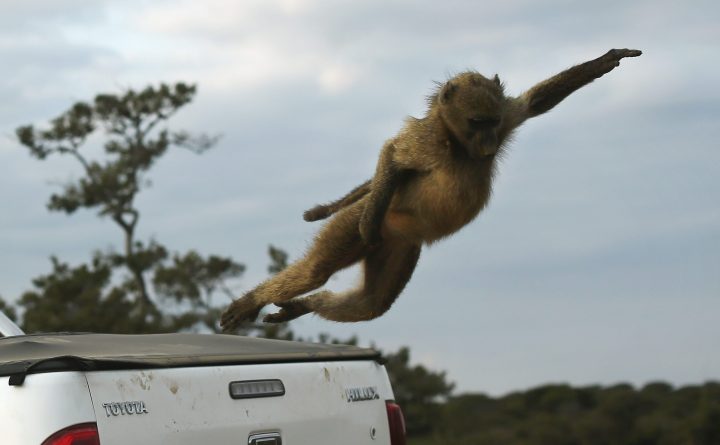
A group of young American women rent a car and road-trip through the Kruger National Park. An outdoor adventure of camping, game drives, bush walks and close-up Big Five sightings, a trip to Kruger is a must for visitors to South Africa.
More than 700 million people worldwide visit zoos every year, according to the World Association of Zoos and Aquariums (Waza), and I grew up as one of these dedicated zoo-goers.
I have fond memories of visiting the Bronx Zoo in New York City many times throughout my Connecticut suburbia American childhood. I was particularly enamoured of the “African Plains” exhibit because of the majestic animals in captivity that I had only seen before in nature documentaries and read about in books. But I will never forget slamming on the breaks recently when a leopard abruptly prowled out onto the road in front of my rented Honda Accord with a dead steenbok hanging from its jaws – in the middle of the savannah of the Kruger National Park in South Africa.
A lion later raced past the car. A giraffe paced up and curiously peeked into the window to stare directly at me. And a herd of elephants joined my friends and I at the watering hole of our bush camp, to name just a few of many surreal sightings.
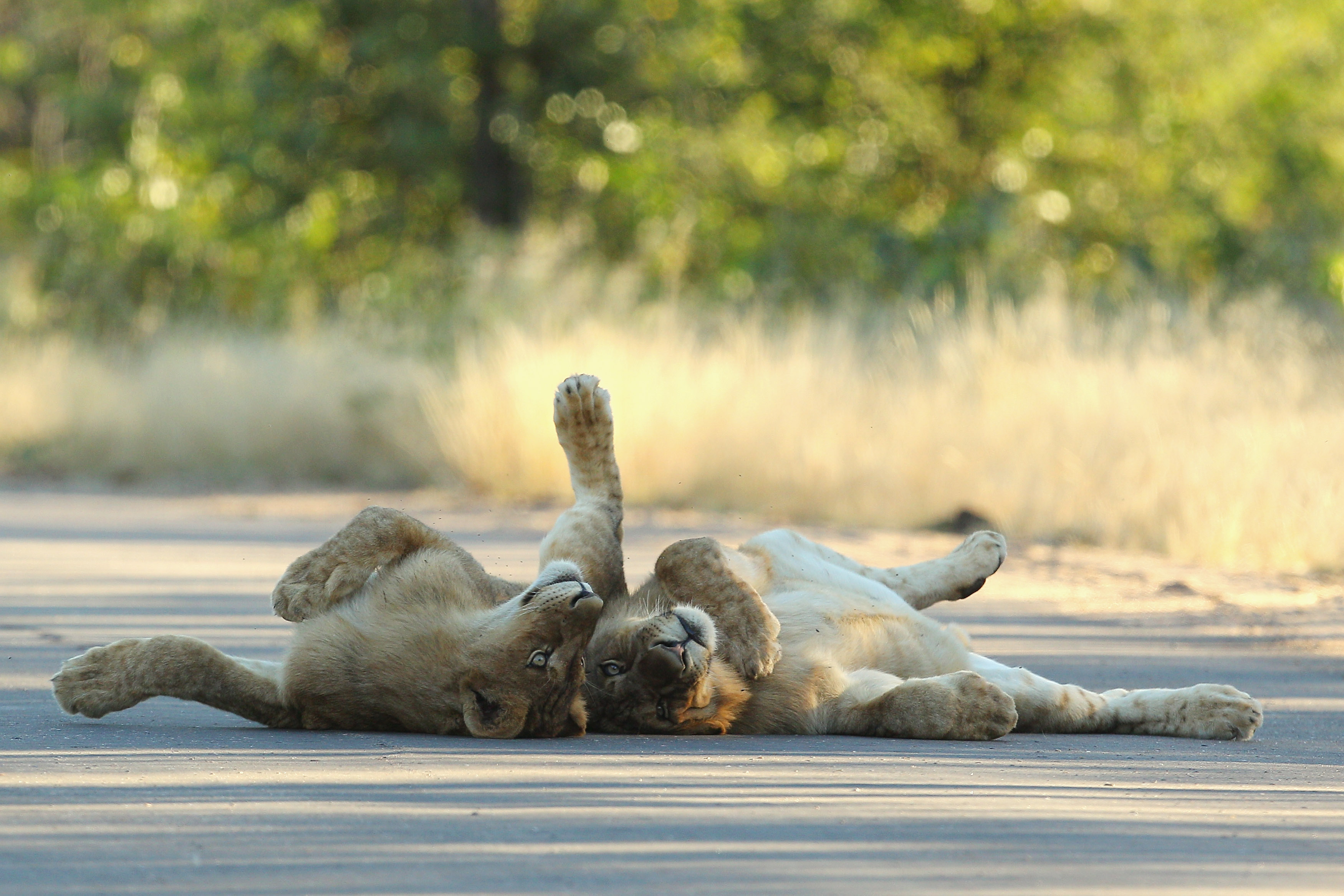
Young male lions relax on a sealed road at the Pafuri game reserve on July 23, 2010 in Kruger National Park, South Africa. Image: Cameron Spencer / Getty Images
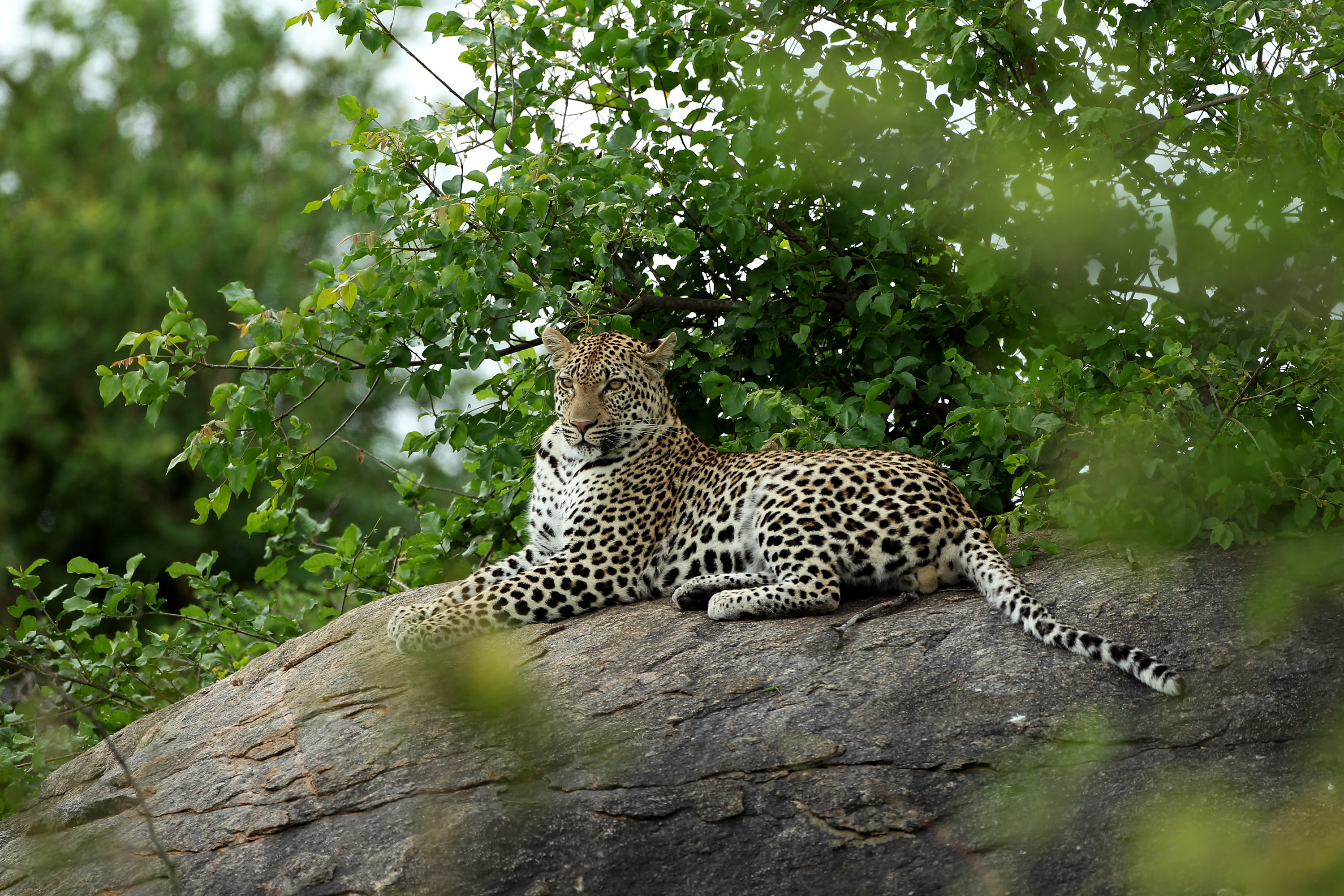
A leopard is pictured in the Kruger National Park. Image: Warren Little / Getty Images
Kruger National Park, larger than Israel and one of the largest African game reserves, is in northeastern South Africa bordering Zimbabwe and Mozambique. According to Travel + Leisure, it is also one of the top 10 national parks on the continent, and in 2022 the park was nominated by the World Travel Awards for Africa’s Leading National Parks. Known particularly for safari excursions and wildlife viewing of the Big Five (lion, leopard, elephant, rhino and buffalo), it also houses more than 753 species of animals and 1,982 plant species.
Read in Daily Maverick: “Backyard wonders – our readers’ top holiday picks at home in South Africa”
My road trip through Kruger was one of the most special adventures of my life and has been a highlight of my time spent in this country.
And now, with a deeper comparative understanding of the restrictive and tampered-with nature of zoos that confine undomesticated animals, I am rethinking the ethics of the institutions and I’m much less keen to return to them.
I’ve also come to the realisation that nothing else compares to the immersive experience of a true African safari – waking up at 4.30 in the morning for sunrise game drives while sipping amarula hot chocolate, my friends shushing each other in the car when we’d spot an animal on the horizon (which more often than not turned out to be just a rock), hearing prides of lion roar to each other in the distance and ending each day with the most vibrant orange-red African sunsets staining the sky, to which photos will never do justice.
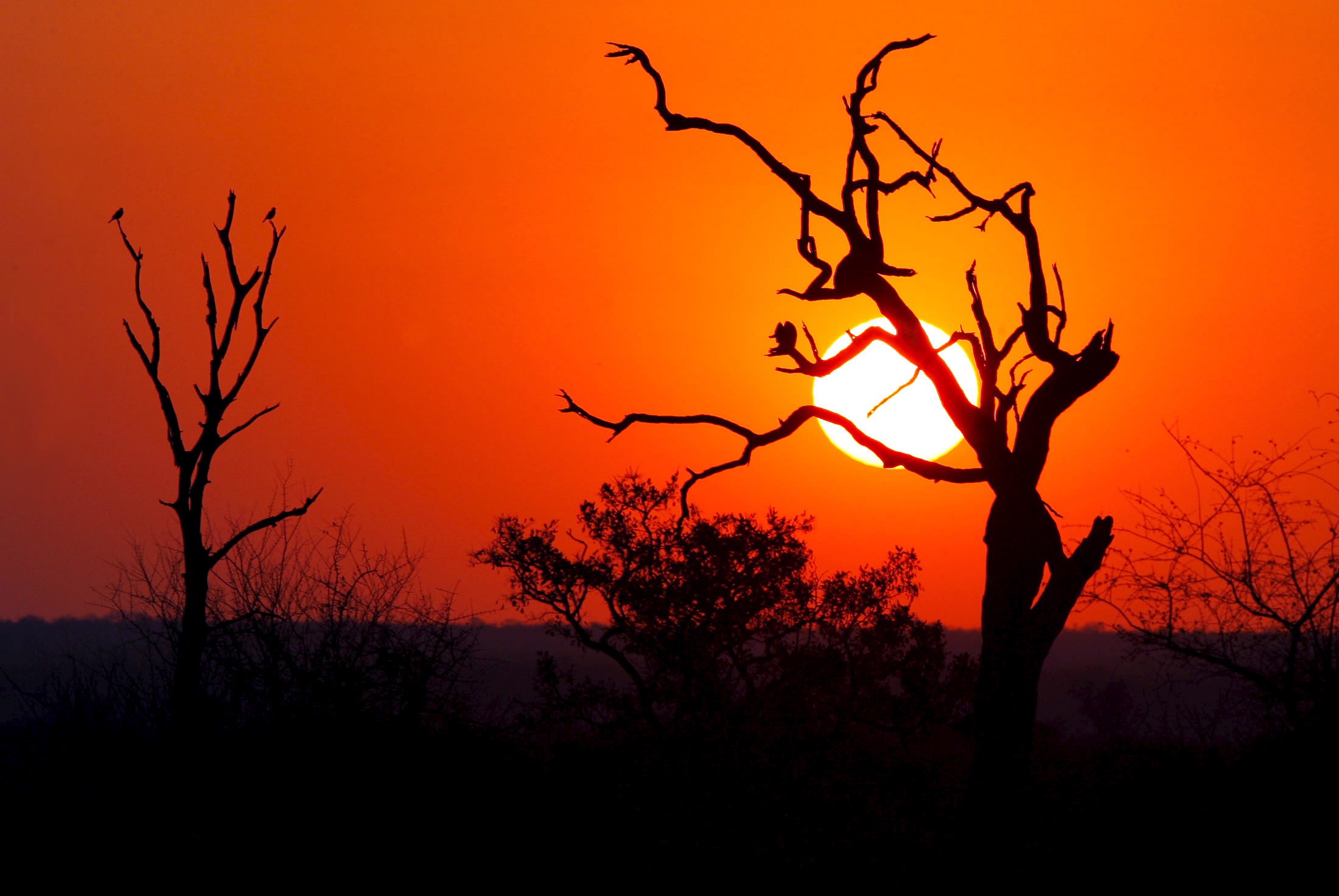
The sun sets behind a dead leadwood tree in the northern Kruger National Park, South Africa, Saturday 01 October 2005. EPA/JON HRUSA
Road trip through ‘the bush’
We decided to split up our one-week excursion into two sections, where we spent the first few days camping inside the Kruger Park itself, and the last few days outside the park at a private game reserve. Each part provided a very different experience, so we had the best of both worlds – an adventurous camping road-trip and a relaxing “glamping” vacation in the bush.
Whichever avenue you choose, Kruger provides a wide array of options for different budgets – there are basic self-catering rest camp facilities within the park, or super-luxury lodges in Kruger’s private reserves, so there is something for everyone.
Read in Daily Maverick: “Tourism takeoff: All dressed up and everywhere to go”
However, having the independence to drive around anywhere in the park anytime we wanted to freely explore off-the-beaten paths was thrilling – between the time the rest camp gates open at 5.30am and close at about 6pm (which shifts slightly depending on the month).
(Tip: Don’t get trapped outside of the rest camps when the gates close. You will be fined or even denied entry at certain gates. If you get stuck in the park, there are hardly any sources of light.)
According to The Times UK, Kruger is the most popular safari destination in Africa, partly because of the tourism infrastructure such as the well-maintained roads for self-driving safaris. There are clearly marked road signs throughout the park and easily readable maps that can be collected at park entry gates.
We flew from Cape Town to Johannesburg, where we picked up our rental car and made the drive of about five hours from the city to Kruger.
We reached Hazyview for a relaxing night by the pool as our first overnight stop. It is a beautiful mountain town conveniently located at the bottom of the park. Only a 20-minute drive to Phabeni Gate, we jump-started the next day early in the morning, ready for a long road trip throughout the Lower Sabie area of Kruger.
Read in Daily Maverick: Manhunt under way after German tourist fatally shot near Kruger National Park
From Lower Sabie (our favourite region: we were the luckiest in terms of animal sightings here) to Skukuza to Olifants to Crocodile Bridge to Letaba, we stopped at several rest camps as we moved north.
(Tip: You can’t get out of your car while driving around the park. Make sure you keep track of the rest camp locations if you need a break.)
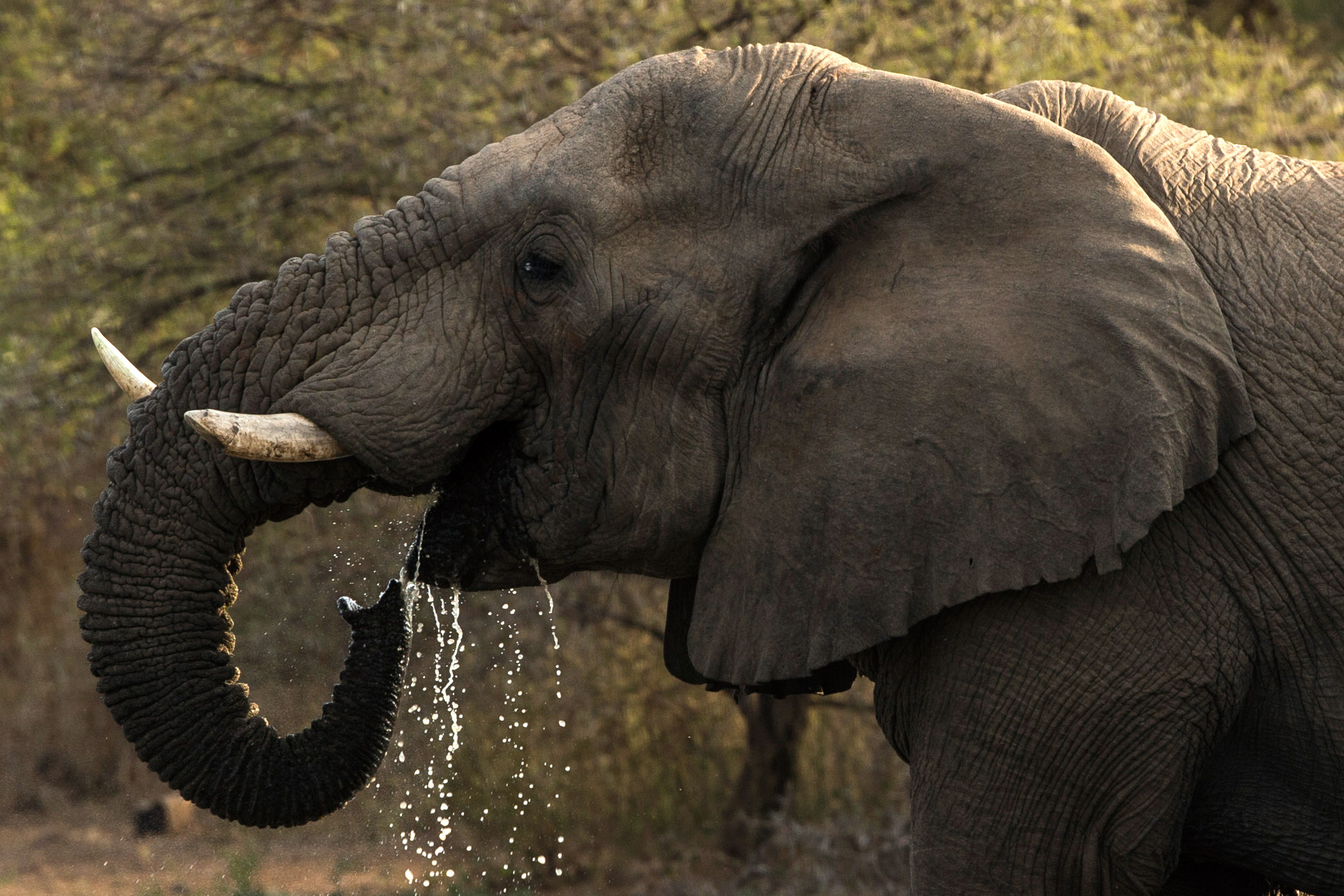
An African Elephant drinks water from a pool in Krugar National Park on July 8, 2013 in Lower Sabie, South Africa. Image: Dan Kitwood / Getty Images
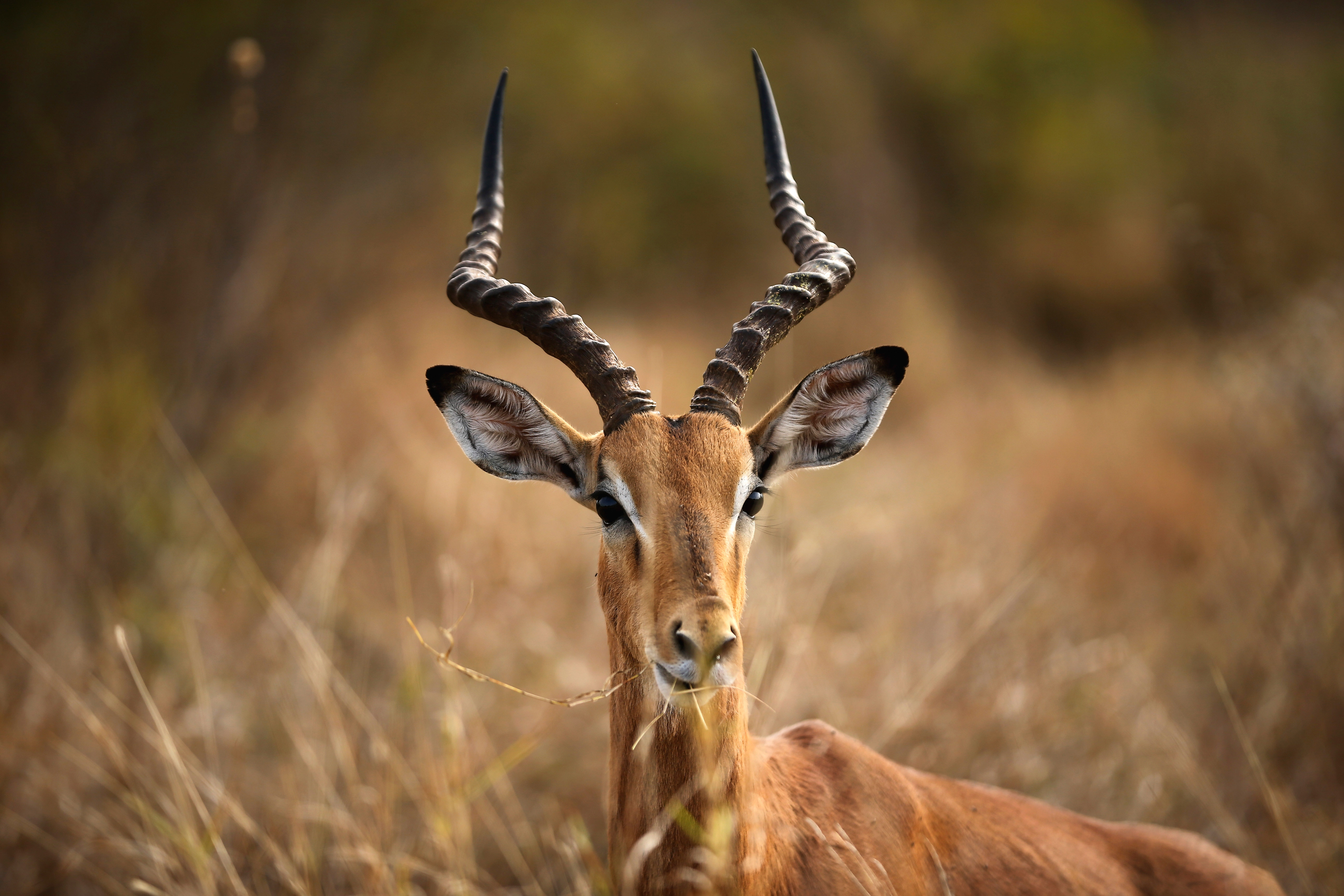
An Impala stands in the long grass in Kruger National Park on July 8, 2013 in Lower Sabie, South Africa. Image: Dan Kitwood / Getty Images
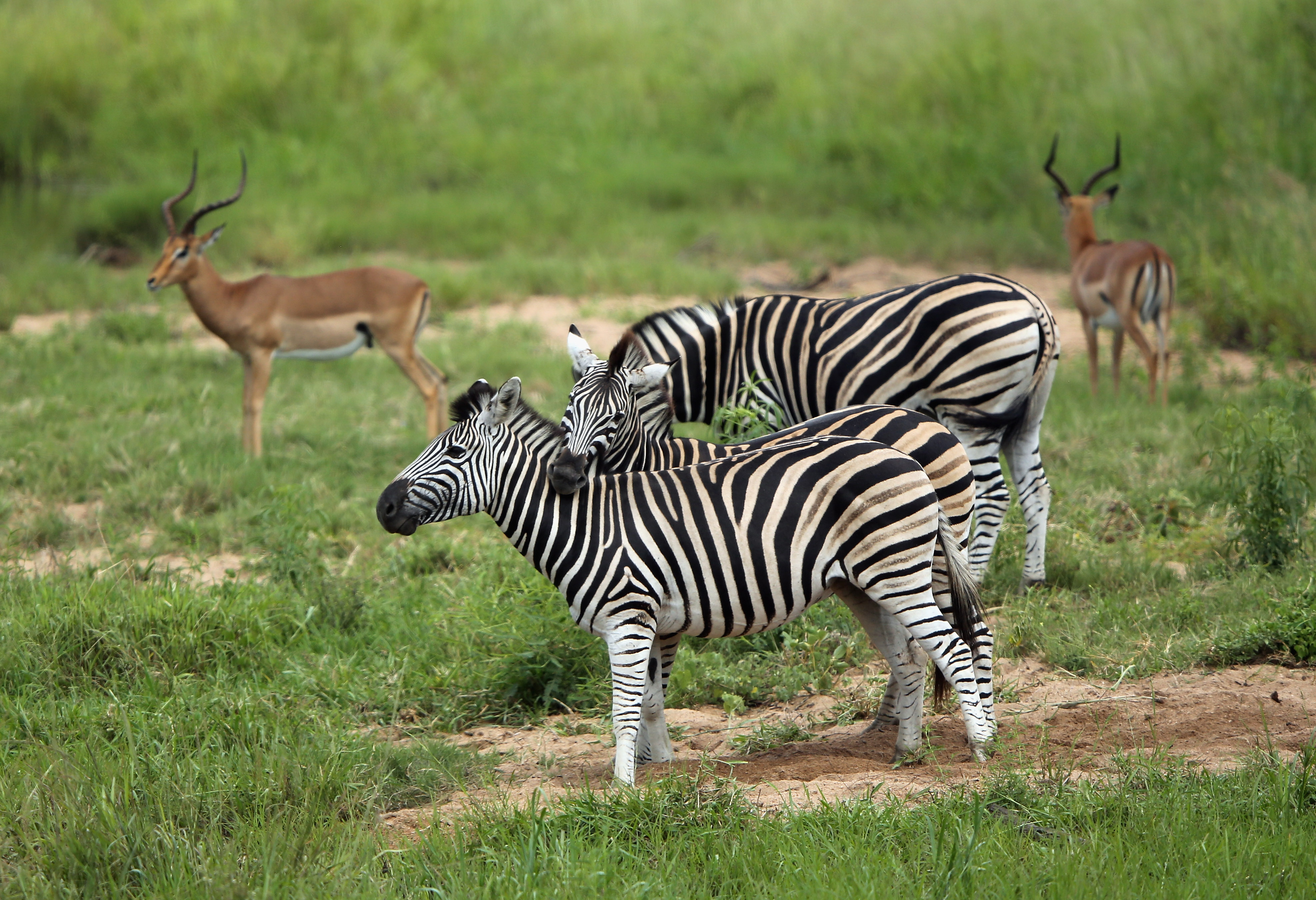
Zebra are pictured in Kruger National Park on February 6, 2013 in Skukuza, South Africa. Image: Ian Walton / Getty Images
At the rest camps, we were able to book additional activities – a sunset game drive in an open-air safari vehicle after the camp gates closed, and a “bush walk” where we woke at 4.30am to hike through the savannah with guides carrying rifles for protection.
As we transitioned through the different regions of the park, the rich yellow savannah landscape became more and more barren and sparse, almost desert-like. It was fascinating to come to an understanding of how enormous the park really is and to witness the landscape change as if we were evolving through the seasons.
(Tip: Although some people might prefer the lush vegetation of the summer months, the best time for observing wildlife is during the dry season because the grass is low – May through October.)
While you can certainly have a full safari experience from the twice-daily optional park game drives, or private game drives, a rental car offers more flexibility to explore and define your own route. This writer recommends renting a vehicle to customise the trip to be more of a personalised adventure via a scavenger hunt-esque road trip.
We were also fortunate because having a rental car gave us larger windows of time and the ability to move around based on the park sighting boards and Twitter threads about where certain animals were last spotted. Checking off animals from our checklist book along the way, we ended up seeing almost every species, except cheetahs and rhinos.
(Tip: We did get a flat tyre near Skukuza, but we were easily able to make it to a nearby petrol station to get the hole patched up. There are several stops spread out across the park for resources if you have car trouble along the way.)
Read in Daily Maverick: “Rhino poaching declines in Africa, but white rhino in Kruger Park hardest hit”
A hidden gem: Isambane Bush Camp
After a night at Letaba for our final rest camp stop, we crossed the park westward to exit at Phalaborwa Gate.
We entered the Parsons region of the Balule Nature Reserve outside of Kruger for our stay at a private camp – Isambane Bush Camp.
A small business of seven employees, Isambane was founded by a young woman, is run by a young team and just opened in April 2021. We stumbled across their website by chance and decided to stay there because of the warm customer service and help with planning over the phone.
Isambane is a tranquil “glamping” site with beautiful tree houses and tents (with both basic and luxury options), a swimming pool overlooking the landscape as well as a watering hole that animals often wander up to. There is also a dining room with impressive meals prepared by stellar chefs, a bar and several lounging areas.
The experience includes two game drives per day with a knowledgeable and friendly safari guide, as well as many other bonuses. During the sunrise game drive, coffee, Amarula hot chocolate and biscuits are provided.; while during the sunset game drive, it will be drinks and snacks.
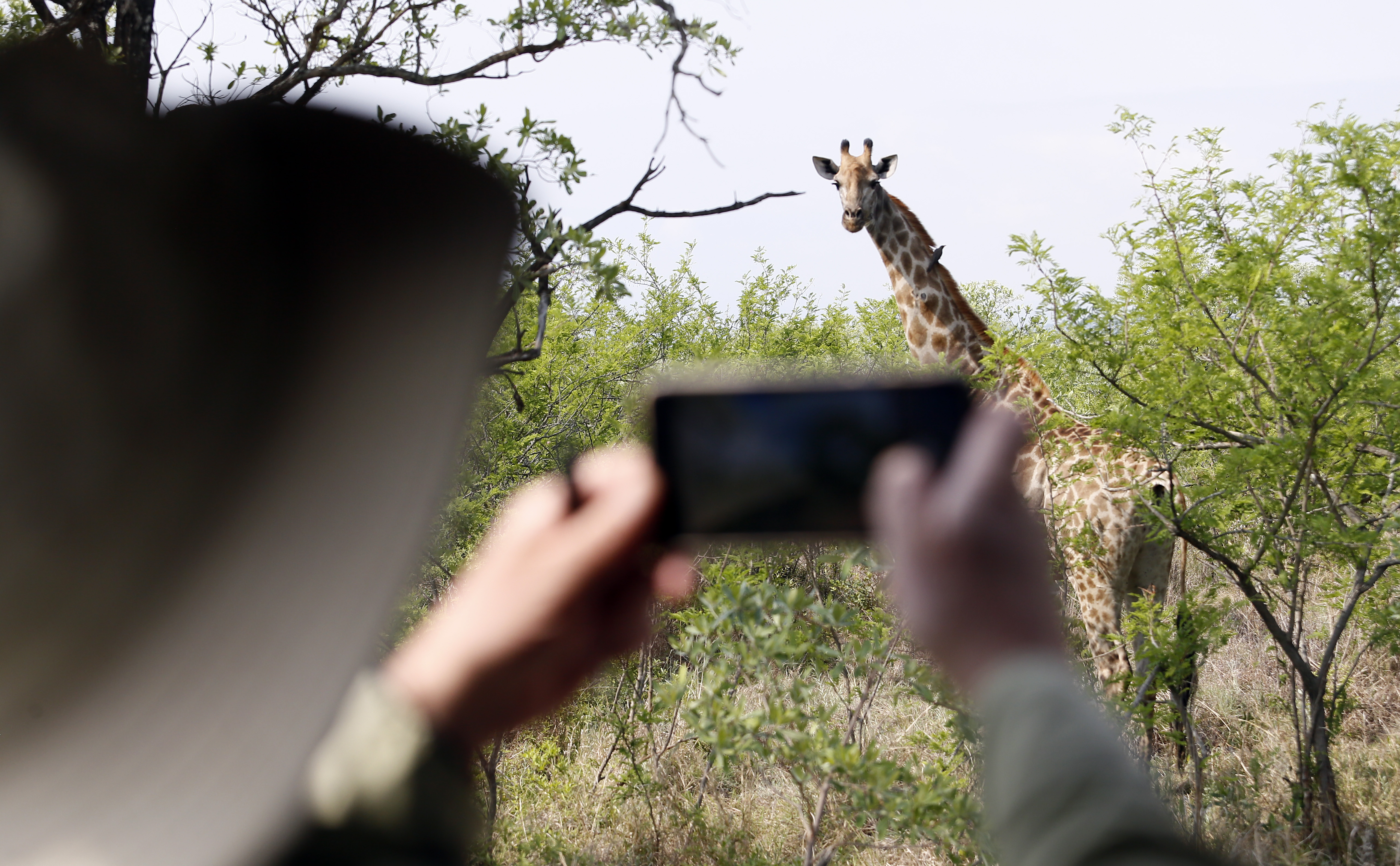
A giraffe at the Numbi Gate of the Kruger National Park on October 18, 2022 in Mbombela, South Africa. Image: Gallo Images / Daily Maverick / Felix Dlangamandla
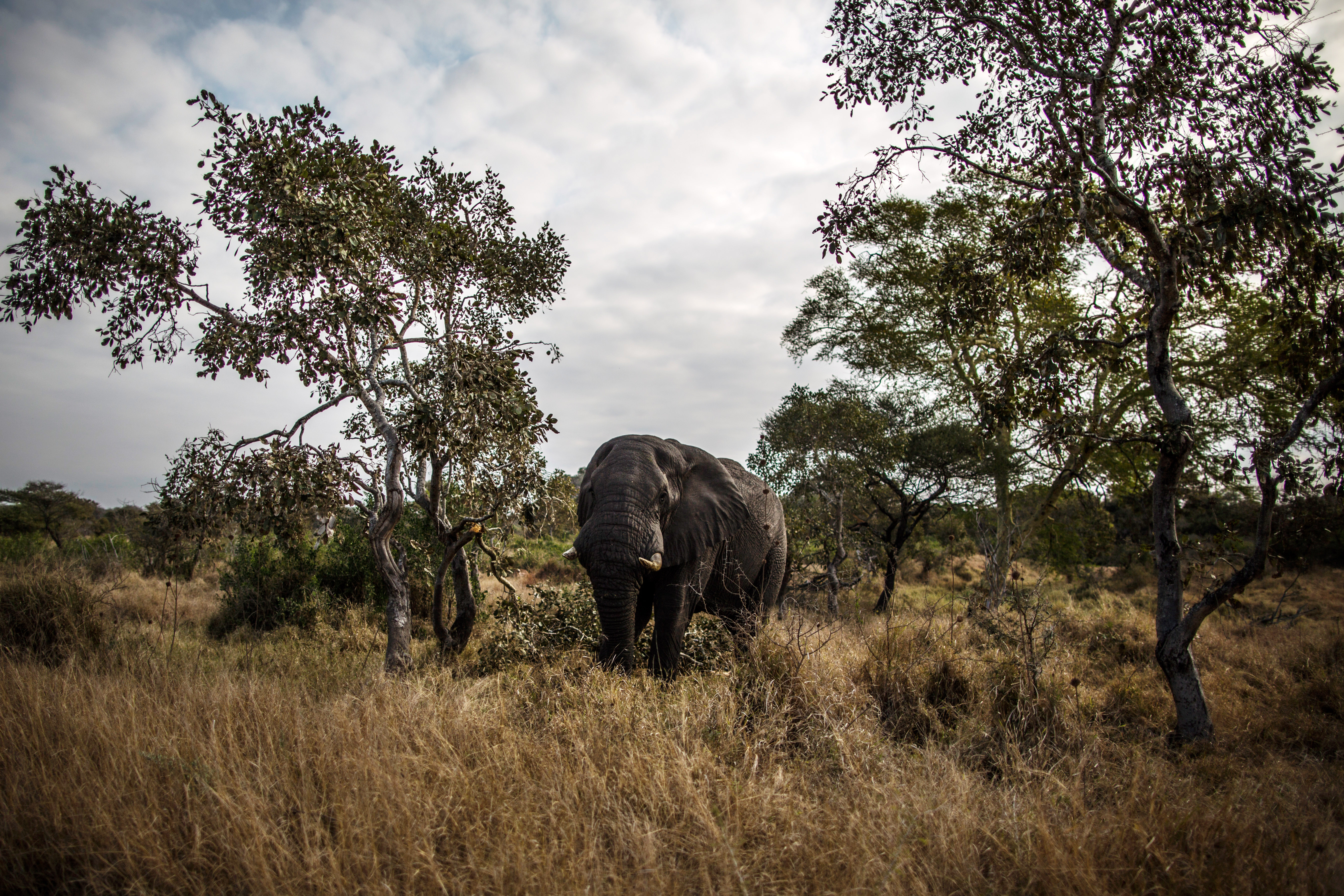
An African Elephant walks through the bush in Kruger National Park on July 8, 2013 in Lower Sabie, South Africa. Image: Dan Kitwood / Getty Images
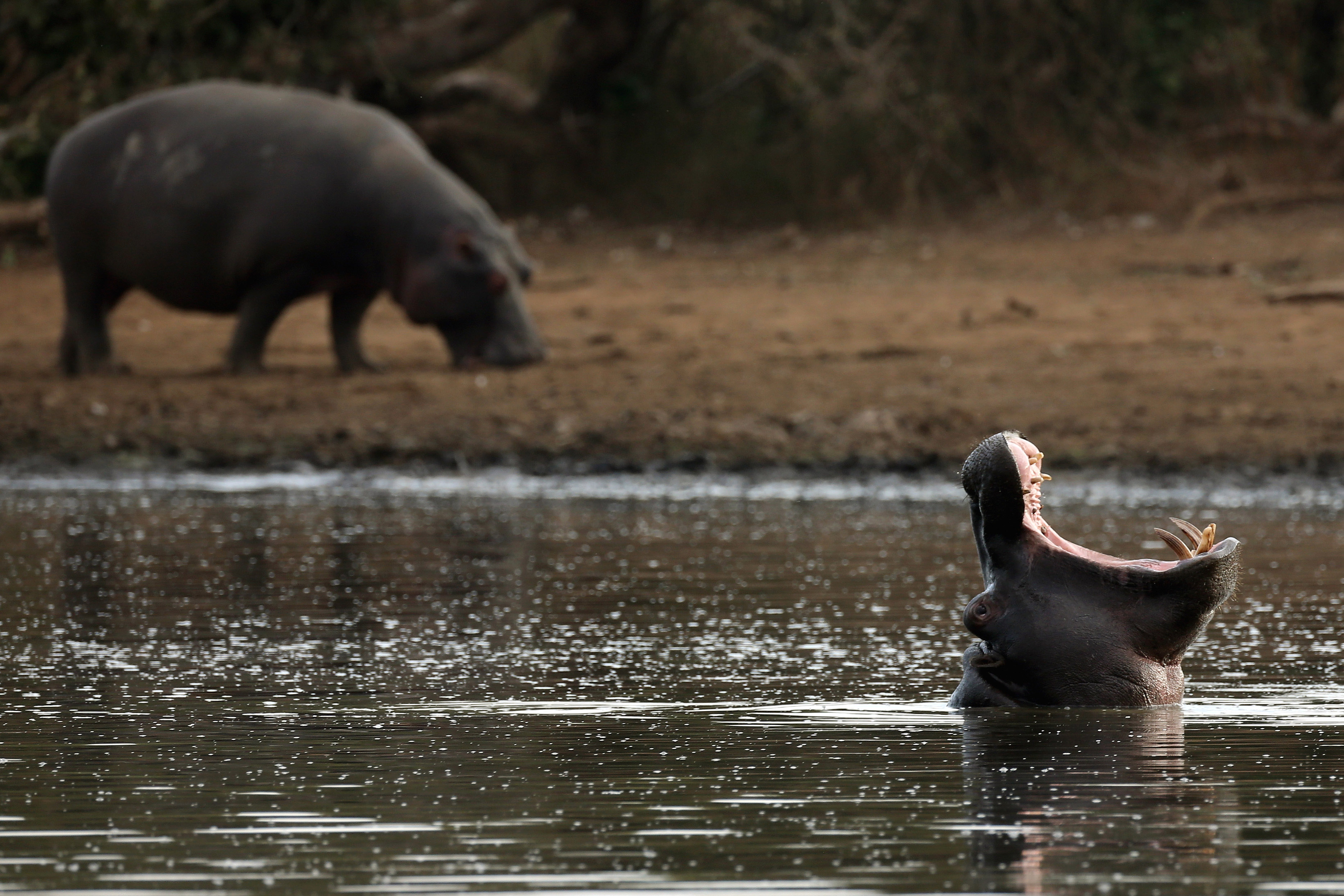
A Hippopotamus yawns in Krugar National Park on July 8, 2013 in Lower Sabie, South Africa. Image: Dan Kitwood / Getty Images
Our safari guide opened our eyes to many intriguing realities about small details of the landscape that I would have easily overlooked before. On the game drives, we also managed to spot several lions lounging and prowling.
(Tip: Ask your safari guide about termite mounds. There is only one queen who rules up to two million termites in her colony.)
With it being a small camp, we were the only guests at the time. This meant we had a more personalised experience and we got to know the camp employees.
The camp is designed to be open-air and integrated into the natural landscape. It felt possible to be in tune and connected to the way of life of the bush, a deep wilderness that is so peacefully separated from the rest of our busy and chaotic society. Having limited phone service (both in Kruger and in the private reserve) was a much-needed break from always being “on”.
In our tents at night, we fell asleep to the sound of crickets and even the distant roaring of a leopard. We woke up to the scurrying sound of bush babies jumping around the wooden beams of the camp ceilings.
This writer highly recommends Isambane Bush Camp to anyone – the people were lovely and every aspect of the service was thoughtful and intentional. Isambane allowed us to continue our safari adventure while taking away the stress of planning and giving us a relaxing vacation for a few days.
The effect of ‘the bush’
The reality of safaris, I’ve learnt, is that the experience is all based on luck – you could end up seeing nothing, or everything. It’s all about time and place.
But while there is nothing quite like the surreal reality of being closer than 2m from one of the Big Five, the experience was about more than just the chase and the sightings. It was about being immersed in the bush, which seemed to have a calming presence as if it was a whole living being in itself.
The calming feeling of attachment to nature was irreplaceable. It was as if I had stepped into another world that operates on its own time and on its own terms. And after observing the animals and gaining so much knowledge from our safari guide, I’ve grasped a deeper understanding of and fascination with how every small aspect of an environment affects everything else – the “circle of life”, so to speak. I’ve greatly enjoyed my metropolitan life here in Cape Town these past few months, but my time in Kruger has given me a newfound appreciation for the complexity and uniqueness of South Africa’s wildlife and landscapes. DM/ML
Anna Southwell is in South Africa on an internship with Daily Maverick as part of a group from the University of North Carolina at Chapel Hill.





















 Become an Insider
Become an Insider
So glad you grasped the true essence of the Kruger/bushveld, namely being “immersed” in it rather than simply “looking at animals”! Something we really need to fight for and protect.